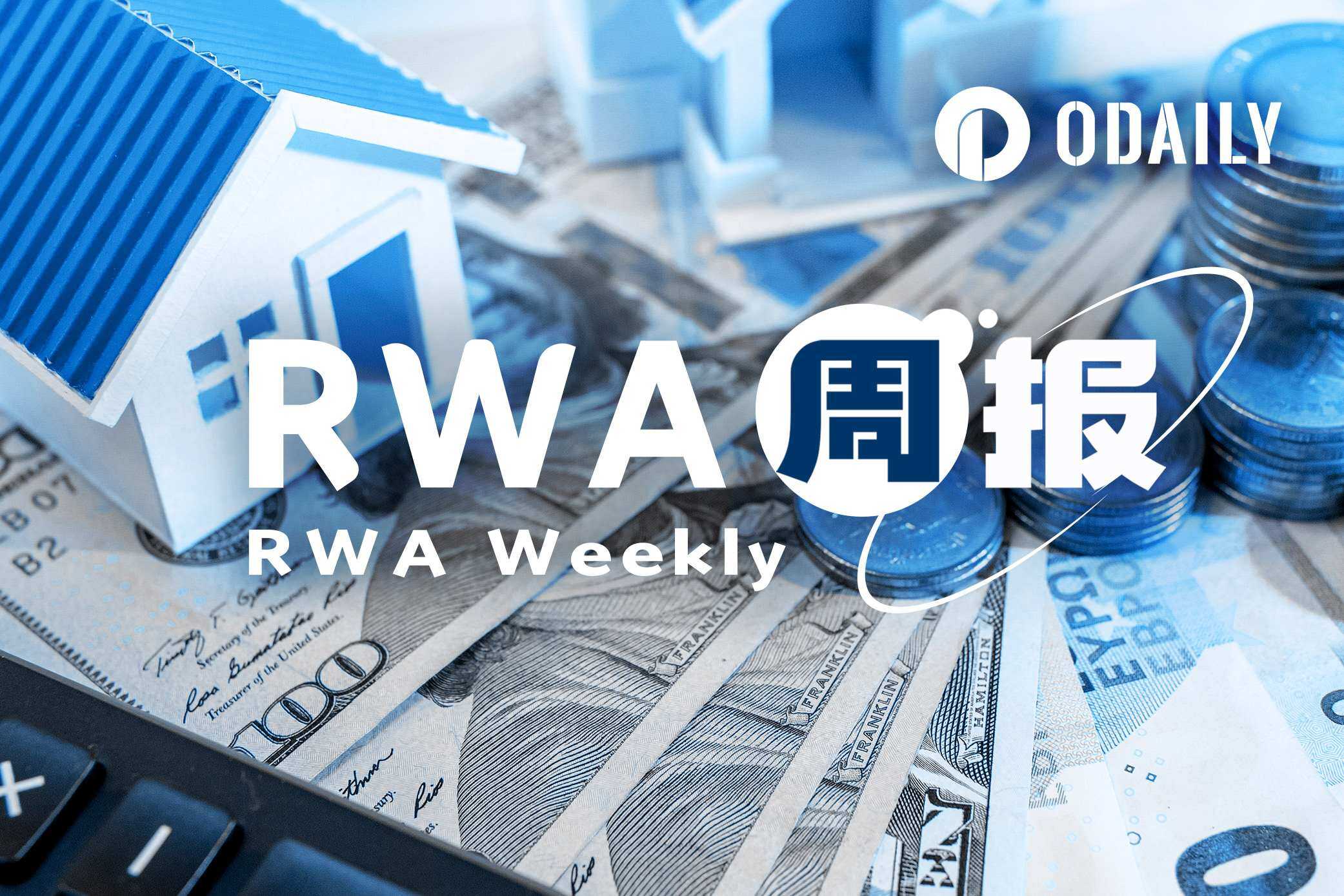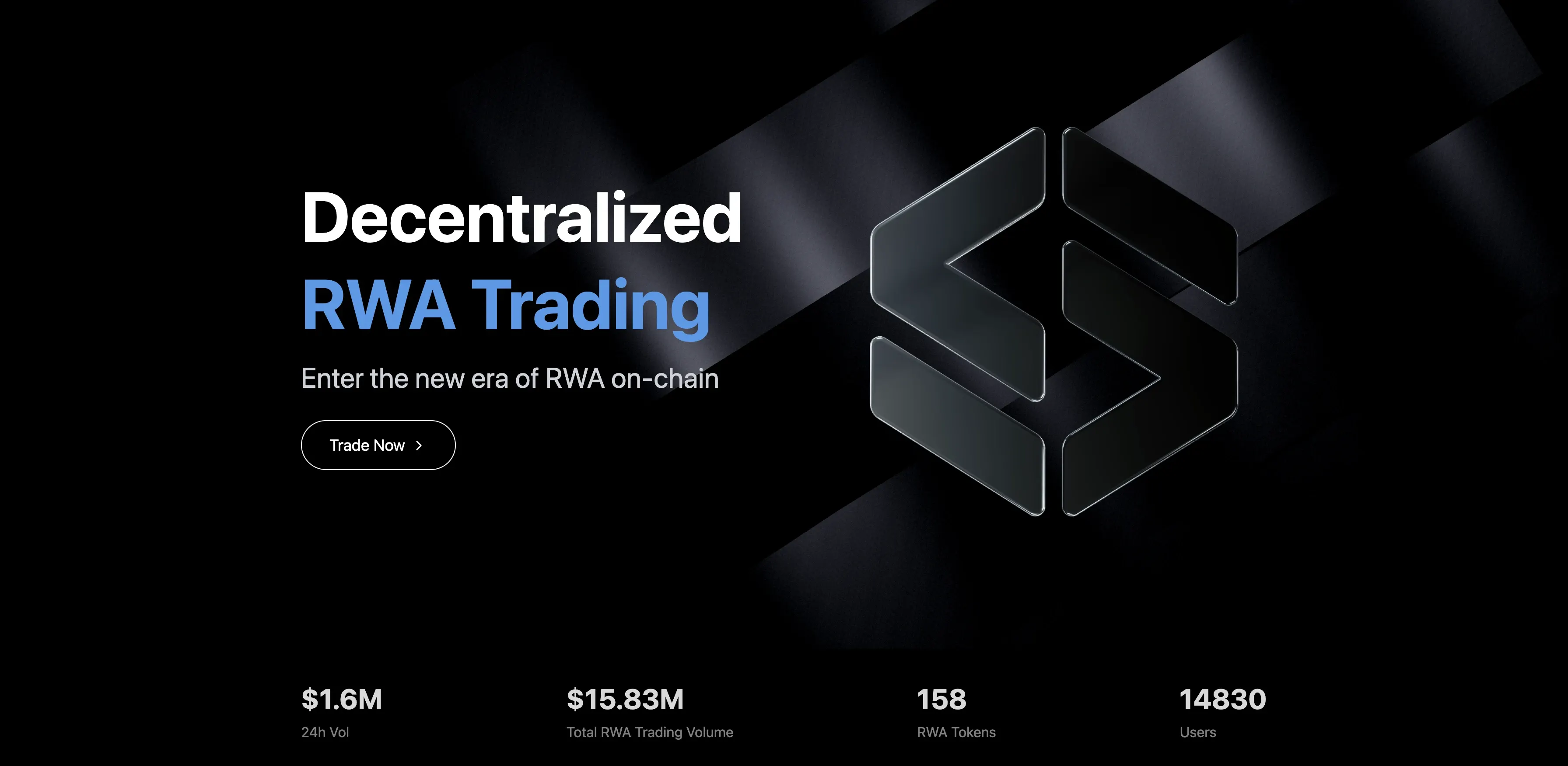RWA Weekly Report | Total On-Chain Value Increases for Six Consecutive Weeks; Central Bank of Malaysia Releases Three-Year Roadmap to Pilot Asset Tokenization Projects (October 29 - November 5)
- 核心观点:RWA市场持续扩张,生态加速完善。
- 关键要素:
- RWA链上总价值连续六周增长。
- 私人信贷与美债成主要配置方向。
- 多国推进资产代币化监管与试点。
- 市场影响:推动传统资产上链,增强市场流动性。
- 时效性标注:中期影响
Original article | Odaily Planet Daily ( @OdailyChina )
Author | Ethan ( @ethanzhang_web3 )

RWA sector market performance
As of November 5, 2025, the total value on the RWA chain was $35.78 billion, an increase of $750 million from $35.03 billion on October 28, representing a growth of 2.14%. This marks the sixth consecutive week of growth, indicating a continued steady expansion in the market. The total number of asset holders increased from 512,041 to 530,943, a weekly increase of 18,902, or 3.69%. The number of asset issuers increased from 230 to 242, a weekly increase of 12, representing the fastest weekly growth in recent weeks. In the stablecoin market, the total market capitalization slightly decreased from $295.97 billion to $294.62 billion, a decrease of $1.35 billion, or 0.46%, remaining within a reasonable range. The number of stablecoin holders increased from 198.77 million to 200.69 million, an increase of approximately 1.92 million, or 0.97%.
From an asset structure perspective, private credit continues to hold a core position, with its value increasing from $17.9 billion to $18.6 billion, a growth of $700 million or 3.91%. Not only has the total amount continued to expand, but its share remains the largest among all RWA assets, indicating a continued strong preference for on-chain credit assets. US Treasury bonds saw further growth this week, rising from $8.6 billion to $8.8 billion, an increase of approximately 2.33%, continuing to attract conservative investment amid easing expectations of lower US Treasury yields. Commodity assets remained at $3 billion, unchanged for two consecutive weeks, indicating a temporary wait-and-see approach to commodities. Institutional alternative funds also remained at $3 billion, with institutional allocation trending towards stability. Public equity assets rebounded slightly to $670.8 million, a slight decrease from $699.5 million last week, reflecting a lack of resilience in market performance this week. Non-US government debt remained stable at $1 billion, while other sectors such as private equity showed no significant fluctuations, remaining largely in a supporting role.
Trend Analysis (Compared to last week )
Overall, the RWA market exhibited a "steady yet accelerating" trend in the first week of November. Market capitalization continued to grow, user numbers continued to rise, and the simultaneous increase in the number of issuers further highlights that the ecosystem infrastructure is entering a new expansion cycle. In terms of asset allocation, private lending and US Treasury bonds remained the main drivers of concentrated capital inflows, while commodities and alternative assets showed a period of consolidation. Although the total market capitalization of stablecoins declined slightly, their user base steadily expanded, reflecting a gradual shift in user behavior towards long-term holding and scenario-based usage.

Key Events Review
Central Bank of Malaysia releases three-year roadmap to pilot asset tokenization projects.
The Central Bank of Malaysia (BNM) has released a three-year roadmap to pilot asset tokenization projects within the financial system. The plan will launch several proof-of-concept (POC) and pilot projects through the Digital Asset Innovation Hub (DAIH), established earlier this year.
The core of the roadmap includes the establishment of an Asset Tokenization Industry Working Group (IWG), jointly led by the central bank and the Securities and Exchange Commission (SC), responsible for promoting industry exploration, knowledge sharing, and regulatory coordination. The initial pilot programs will focus on application scenarios with clear economic value, such as supply chain financing to expand credit access for SMEs, tokenized liquidity management to improve settlement efficiency, and compliant applications that can automatically execute Islamic financial transactions.
BNM also plans to explore RM100-denominated tokenized deposit and stablecoin solutions to ensure currency consistency and improve digital settlement efficiency. Furthermore, it will explore integration with wholesale central bank digital currencies (CBDCs). This project aims to modernize financial infrastructure in tandem with Asian regulators such as the Monetary Authority of Singapore (MAS) and the Hong Kong Monetary Authority (HKMA). (Cointelegraph)
In response to market rumors that the Hong Kong Monetary Authority (HKMA) is not pushing forward the retail application of digital Hong Kong dollars, HKMA Deputy Chief Executive Li Dazhi said: "We have not ruled out the retail application of stablecoins. We believe that there is a high chance of using stablecoins in retail, but the actual usage still depends on the decision of commercial institutions."
Li Dazhi added that digital Hong Kong dollars, stablecoins, and tokenized deposits are technically similar, differing only in their issuers. Digital Hong Kong dollars are "publicly issued currencies," while tokenized deposits and stablecoins are "privately issued currencies." Digital Hong Kong dollars and tokenized deposits tend to use private blockchains, while stablecoins are mostly issued on public blockchains. Furthermore, Zhou Wenzheng, Assistant Chief Executive (Financial Infrastructure) of the Hong Kong Monetary Authority (HKMA), stated that based on expressions of interest received by the HKMA, seven banks currently intend to launch tokenized deposits this year. (Hong Kong Economic Journal)
Zhaojin Mining: Signs Strategic Cooperation Memorandum with Ant Financial
Zhaojin Mining (01818.HK) announced on the Hong Kong Stock Exchange that its wholly-owned subsidiary, Zhaojin Mining Limited (Hong Kong), entered into a strategic cooperation memorandum of understanding with SigmaLayer Company Limited (a member company of Ant Group's technology commercialization segment) on November 3, 2025. According to the memorandum, the Group and Ant Financial will establish a strategic partnership in multiple areas based on the application of blockchain and artificial intelligence core technologies, including building and exploring the digitization and tokenization of overseas gold assets; an AI-driven intelligent supply chain and risk control system; and achieving reliable value delivery in the areas of sustainable development and environmental, social, and governance (ESG). Any specific activities and projects contemplated herein will be subject to strict compliance with regulations and security, and will subsequently be subject to a formal agreement signed by the parties to the memorandum. (Jinshi)
Coinbase reportedly plans to acquire stablecoin startup BVNK for $2 billion.
According to a Bloomberg report citing sources familiar with the matter, Coinbase Global Inc. is in late stages of talks to acquire BVNK, a stablecoin infrastructure startup, in a deal potentially valued at $2 billion. The acquisition is expected to close in late 2025 or early 2026. Founded in 2021, BVNK provides enterprise-grade stablecoin payment services, and Coinbase Ventures is already an investor. This move comes as stablecoins become increasingly important to Coinbase, accounting for 20% of its total revenue, approximately $246 million, in the third quarter of 2025. (Cointelegraph)
Yi Lihua, founder of Liquid Capital (formerly LD Capital), stated in an article that, from a long-term perspective, public blockchains, exchanges, and stablecoins are three types of core assets that can weather economic cycles.
He pointed out that in the public blockchain field, the focus should be on Ethereum (ETH), while in the exchange sector, he is optimistic about BNB and Aster—the former has stable revenue and an ecosystem foundation, while the latter, as Binance's "second growth curve," has the highest strategic importance in the entire Binance system.
Yi Lihua emphasized that the strong will remain strong in the future, and all three directions should adhere to investing only in top-tier projects. "Every significant correction is a golden opportunity to make strategic investments."
Stablecoin blockchain launches public testnet
According to official news, Stable, a stablecoin public blockchain, has officially launched its public testnet. Currently, the testnet offers developers several features, including: a public RPC endpoint for network interaction, a tap for requesting USDT testing, a block explorer for tracking contracts and on-chain activity, and a system module supporting native USDT transfers and fee settlement. Stable stated that this testnet will lay the foundation for future mainnet deployment and ecosystem application development.
The Hong Kong Securities and Futures Commission (SFC) chief executive said Hong Kong will allow locally licensed virtual asset trading platforms to share global order books with their overseas affiliates to increase liquidity. (Reuters)
BlackRock to launch Bitcoin ETF in Australia
BlackRock will launch a Bitcoin exchange-traded fund (ETF) in Australia.
Trending Projects
Ondo Finance (ONDO)

In short:
Ondo Finance is a decentralized finance protocol focused on the tokenization of structured financial products and real-world assets. Its goal is to provide users with fixed-income products, such as tokenized US Treasury bonds or other financial instruments, through blockchain technology. Ondo Finance allows users to invest in low-risk, highly liquid assets while maintaining decentralized transparency and security. Its token, ONDO, is used for protocol governance and incentive mechanisms, and the platform also supports cross-chain operations to expand its application within the DeFi ecosystem.
Latest news:
On October 29th, Ondo Global Markets announced the expansion of its stock tokenization platform to BNB Chain. Launched in September, Ondo Global Markets' expansion is reportedly built on its cross-chain strategy and is currently supported on Ethereum, with plans for deployment on other blockchains. Data shows that within weeks of its September launch, Ondo Global Markets' TVL exceeded $350 million, with a total on-chain transaction volume of $669 million.
Previously, Ondo Finance announced on the X platform that more than 90 million wallets now support tokenized stocks and ETFs trading. In addition, its subsidiary Ondo Global Markets has also received support from Blockchain.com, which will provide global users with trading services for more than 100 tokenized stocks and ETFs.
MyStonks (STONKS)

In short:
MyStonks is a community-driven DeFi platform focused on tokenizing and trading RWA (Retail Assets and Services) such as US stocks on the blockchain. Through a partnership with Fidelity, the platform enables 1:1 physical custody and token issuance. Users can mint stock tokens like AAPL.M and MSFT.M using stablecoins such as USDC, USDT, and USD1, and trade them 24/7 on the Base blockchain. All trading, minting, and redemption processes are executed by smart contracts, ensuring transparency, security, and auditability. MyStonks aims to bridge the gap between TradeFi and DeFi, providing users with a highly liquid, low-barrier-to-entry on-chain investment gateway to US stocks, building a "Nasdaq for the crypto world."
Latest news:
On September 25th, MyStonks announced a brand upgrade , officially changing its domain name to msx.com, marking a new era of global fintech. This upgrade not only simplifies access but also reflects a shift from a meme-centric approach to a professional international financial brand, demonstrating its commitment to digital financial innovation and global expansion. The msx.com team stated that it will continue to focus on users, drive technological innovation, and improve the security and efficiency of digital financial services.
Previously, MyStonks officially launched Hong Kong stock contract trading , allowing users to directly use their wallets to trade via USDT/USDC, with leverage up to 20x. This launch includes several high-quality Hong Kong stocks, including Guotai Junan International (1788.HK), BYD (1211.HK), Xiaomi Corporation (1810.HK), Mixue Group (2097.HK), Meituan (3690.HK), Tencent Holdings (700.HK), Pop Mart (9992.HK), JD.com (9618.HK), and SMIC (981.HK), covering multiple industries such as technology, automobiles, retail, internet, and semiconductors, meeting users' diverse asset allocation needs.
Related Links
We've compiled the latest insights and market data for the RWA sector.
Understanding RWA Slang: A Glossary of Professional Terms in the World of Blockchain Assets
This article will unveil the jargon and help you easily understand the core concepts and terminology in the RWA field.
Understanding Regulation Correctly: The Compliance Development Path of the RWA Industry in China
Understanding the core intent of regulatory policies and exploring innovation within a compliant framework are crucial for the sustainable development of the RWA industry in China. Regulation is not about prohibiting business, but about guiding financial innovation to better serve the real economy and prevent systemic financial risks. Only by adhering to the principle of "shifting from virtual to real" can RWA find a suitable development path in China.



